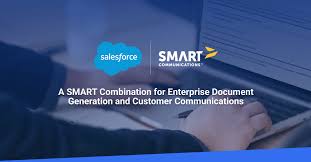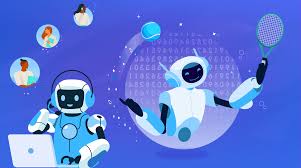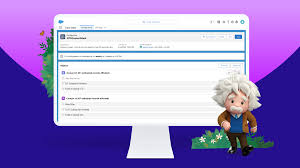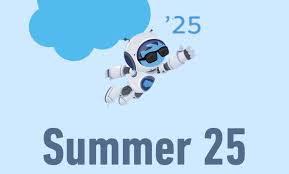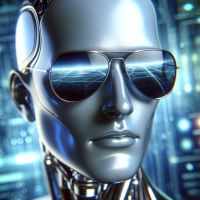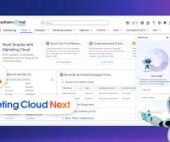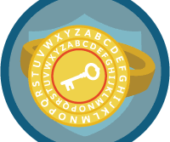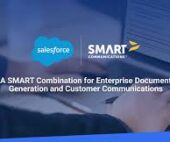Salesforce CEO Dismisses AI Job Loss Fears as “Alarmist,” Even as Company Cuts Hiring Due to AI San Francisco, CA — Salesforce isn’t alarmist about AI because they view it as a tool to augment human capabilities and enhance business processes, not as a threat to jobs. They are actively developing and implementing AI solutions like Einstein AI and Agentforce to improve efficiency and customer experience. While Salesforce has reduced some hiring in certain areas due to AI automation, they are also expanding hiring in other areas, according to the Business Journals. Salesforce CEO Marc Benioff pushed back against warnings of widespread job losses from artificial intelligence during the company’s Wednesday earnings call, calling such predictions “alarmist.” However, his remarks came just as one of his top executives confirmed that AI is already reducing hiring at the tech giant. The debate over AI’s impact on employment—from generative tools like ChatGPT to advanced robotics and hypothetical human-level “digital workers”—has raged in the tech industry for years. But tensions escalated this week when Anthropic CEO Dario Amodei told Axios that businesses and governments are downplaying the risk of AI rapidly automating millions of jobs. “Most of them are unaware that this is about to happen,” Amodei reportedly said. “It sounds crazy, and people just don’t believe it.” Benioff, however, dismissed the notion. When asked about Amodei’s comments, he argued that AI industry leaders are succumbing to groupthink. He emphasized that AI lacks consciousness and cannot independently run factories or build self-replicating machines. “We aren’t exactly even to that point yet where all these white-collar jobs are just suddenly disappearing,” Benioff said. “AI can do some things, and while this is very exciting in the enterprise, we all know it cannot do everything.” He cited AI’s tendency to produce inaccurate “hallucinations” as a key limitation, noting that even if AI drafts a press release, humans would still need to refine it. While expressing respect for Amodei, Benioff maintained that “some of these comments are alarmist and get a little aggressive in the current form of AI today.” Yet, even as Benioff downplayed AI’s threat to jobs, Salesforce COO Robin Washington revealed that the company is already cutting hiring due to AI efficiencies. AI agents now handle vast numbers of customer service inquiries, reducing the need for new hires. About 500 customer support employees are being shifted to “higher-impact, data-plus-AI roles.” Washington also told Bloomberg that Salesforce is hiring fewer engineers, as AI agents act as assistants, boosting productivity without expanding headcount. (One area still growing? Sales teams pitching AI to other companies, according to Chief Revenue Officer Miguel Milano.) Salesforce’s Agentforce landing page highlights its AI-human collaboration model, boasting “Agents + Humans. Driving Customer Success together since October 2024.” A live tracker shows AI handling nearly as many support requests as humans—though human agents still lead by about 12%. The Broader AI Fear Factor Public anxiety around AI centers on: Hollywood dystopias like The Terminator and Maximum Overdrive amplify these fears, but experts argue reality is far less dramatic. Why AI Panic May Be Overblown Dr. Sriraam Natarajan, a computer science professor at UT Dallas and an AI researcher, reassures that AI lacks consciousness and cannot “think” like humans. “AI-driven Armageddon is not happening,” Natarajan said. “‘The Terminator’ is a great movie, but it’s fiction.” Key limitations of current AI: Natarajan acknowledges risks—like bad actors misusing AI—but stresses that safeguards are a major research focus. “I don’t fear AI; I fear people who misuse AI,” he said. Rather than replacing jobs, Natarajan sees AI as a productivity booster, handling repetitive tasks while humans focus on creativity and strategy. He highlights AI’s potential in medicine, climate science, and disaster prediction—but emphasizes responsible deployment. The Bottom Line While Benioff and other tech leaders dismiss doomsday scenarios, AI is already reshaping hiring—even at Salesforce. The real challenge lies in balancing innovation with workforce adaptation, ensuring AI augments rather than replaces human roles. For now, the robots aren’t taking over—but they are changing how companies operate. Like Related Posts Salesforce OEM AppExchange Expanding its reach beyond CRM, Salesforce.com has launched a new service called AppExchange OEM Edition, aimed at non-CRM service providers. Read more The Salesforce Story In Marc Benioff’s own words How did salesforce.com grow from a start up in a rented apartment into the world’s Read more Salesforce Jigsaw Salesforce.com, a prominent figure in cloud computing, has finalized a deal to acquire Jigsaw, a wiki-style business contact database, for Read more Service Cloud with AI-Driven Intelligence Salesforce Enhances Service Cloud with AI-Driven Intelligence Engine Data science and analytics are rapidly becoming standard features in enterprise applications, Read more

